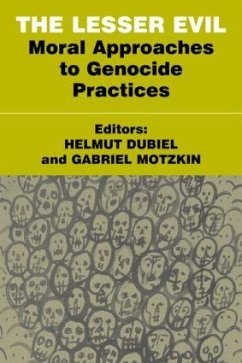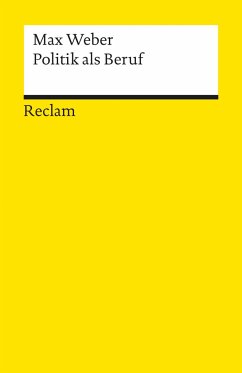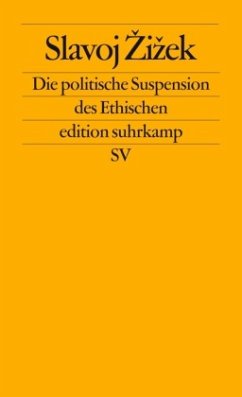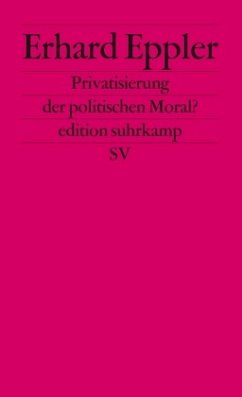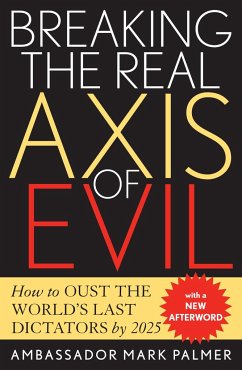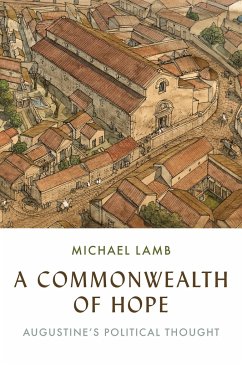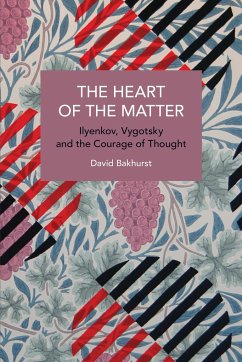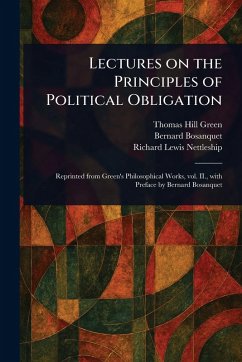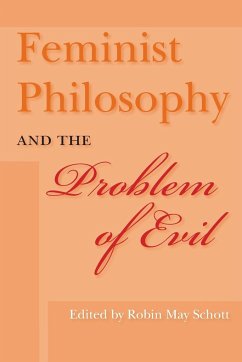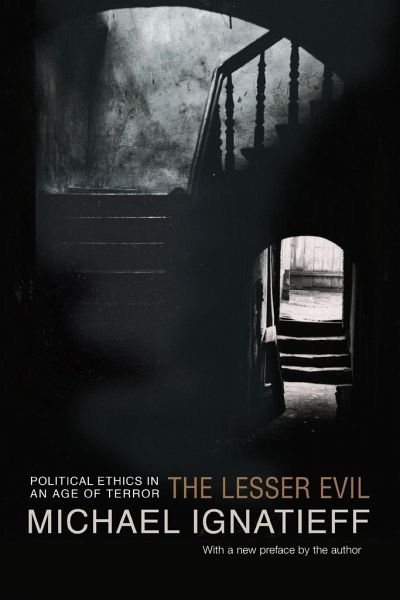
The Lesser Evil
Political Ethics in an Age of Terror
Versandkostenfrei!
Versandfertig in über 4 Wochen
37,99 €
inkl. MwSt.
Weitere Ausgaben:

PAYBACK Punkte
19 °P sammeln!
"Michael Ignatieff has written a sober yet chilling account of the issues facing liberal democracies in the face of modern international terrorism. In a surgical analysis he describes the challenges facing their leaders and citizens. His warning of the critical dangers of under- and over-reaction in combating terrorism could not be more timely."--Justice Richard Goldstone, Constitutional Court of South Africa"Michael Ignatieff's "The Lesser Evil" is a strikingly readable rumination on the ethical challenge of our time: How can a liberal democracy survive the long struggle against terror and do so in ways that preserve its institutions and dignity intact? His answer is a profound moral analysis, drawing on insights from philosophy, law, and literature, of how to surmount the strength of the terrorists, who are weak, and avoid the weakness of the democracies, who can be both strong and just."--Michael Doyle, Harold Brown Professor of Law and International Affairs, Columbia University
Must we fight terrorism with terror, match assassination with assassination, and torture with torture? Must we sacrifice civil liberty to protect public safety? In the age of terrorism, the temptations of ruthlessness can be overwhelming. But we are pulled in the other direction too by the anxiety that a violent response to violence makes us morally indistinguishable from our enemies. There is perhaps no greater political challenge today than trying to win the war against terror without losing our democratic souls. Michael Ignatieff confronts this challenge head-on, with the combination of hard-headed idealism, historical sensitivity, and political judgment that has made him one of the most influential voices in international affairs today. Ignatieff argues that we must not shrink from the use of violence--that far from undermining liberal democracy, force can be necessary for its survival. But its use must be measured, not a program of torture and revenge. And we must not fool ourselves that whatever we do in the name of freedom and democracy is good. We may need to kill to fight the greater evil of terrorism, but we must never pretend that doing so is anything better than a lesser evil. In making this case, Ignatieff traces the modern history of terrorism and counter-terrorism, from the nihilists of Czarist Russia and the militias of Weimar Germany to the IRA and the unprecedented menace of Al Qaeda, with its suicidal agents bent on mass destruction. He shows how the most potent response to terror has been force, decisive and direct, but--just as important--restrained. The public scrutiny and political ethics that motivate restraint also give democracy its strongest weapon: the moral power to endure when the furies of vengeance and hatred are spent. The book is based on the Gifford Lectures delivered at the University of Edinburgh in 2003.



